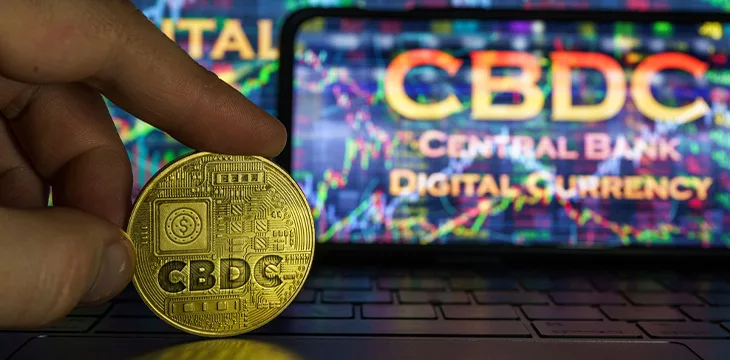|
Getting your Trinity Audio player ready...
|
A recent statement by Bank of Japan (BOJ) Governor Kazuo Ueda revealed that only 3.1% of survey respondents were familiar with the concept of a central bank digital currency
(CBDC). Another 20% had heard of it but weren’t familiar with it.
This stands in stark contrast to the United States, where almost half the population is aware of CBDCs, and 34% oppose them. In the Land of the Free, only 16% support CBDCs, according to the Cato Institute.
Support for CBDCs is strongest in emerging markets where their economic benefits are most acutely recognized. For example, in Nigeria, 91% of respondents to a survey said they were likely to use CBDCs, with Indonesians also showing strong support.
The data shows vast differences in attitudes toward CBDCs, with stronger support for them in fast-growing economies and opposition to them in countries with solid values around liberty and privacy.
Why is there opposition to CBDCs?
Surveys in the United Kingdom and elsewhere in the Western world have shown skepticism towards national digital currencies. Concerns range from privacy to the potential for economic instability.
Indeed, even in Japan, there is concern about how digital currencies might affect banks. In his recent statement, BOJ Governor Ueda noted their potential to cause outflows from banks and highlighted how most countries plan to impose CBDC holding limits.
However, the biggest concern is usually privacy. Citizens fear that every transaction could be watched and monitored by overbearing governments. In some cases, skeptics have raised concerns about the potential for transaction censorship.
Are there any upsides to CBDCs?
Of course, while there are CBDC skeptics, there are also supporters who highlight their
benefits. Proponents point to the ability to stimulate economically deprived areas, get cash into citizens’ hands faster during downturns by cutting out retail banks, and control what welfare payments can be used for, e.g., by making payments spendable only on essentials.
Supporters of CBDCs argue that the ability to monitor financial activity cuts both ways. While governments would have an unprecedented overview of the flow of payments, citizens would also be able to monitor more closely how taxes are being spent and what wallets holding public funds are doing in real time.
CBDCs are also suitable for a broader range of payments than cash, something BOJ Governor Ueda also pointed out in his speech. Since they “transcend space,” meaning they are non-physical, they can be used in ways cash cannot, such as in online payments, sending payments across the country, and more.
Opinion: Two sides to one story
As always, there are two sides to the CBDC story. There are benefits and drawbacks, and each country must try to find a balance that works for its citizens.
It’s also worth noting that many of the concerns about payment censorship and privacy can be addressed by issuing CBDCs on a scalable public blockchain like BSV. Doing so would mean only payments related to illegal transactions could be frozen or seized with a valid court order, creating a layer of protection for users concerned about bureaucratic abuse.
Likewise, payments on a low-fee scalable blockchain can offer a level of privacy that national ledgers cannot; identity is firewalled on the BSV blockchain. Since transactions are so cheap that they are almost free, it’s also possible for citizens to hold many wallets with small amounts of cash, only using them once or twice.
All of this requires careful thought and consideration, but using a scalable public blockchain can realize many of CBDCs’ benefits while mitigating many of the concerns about them.
To learn more about central bank digital currencies and some of the design decisions that need to be considered when creating and launching it, read nChain’s CBDC playbook.
Watch: CBDCs are more than just digital money

 02-17-2026
02-17-2026 




